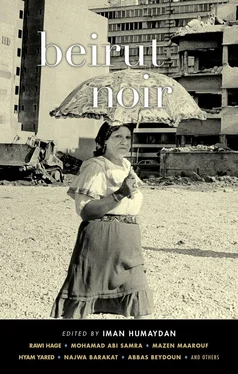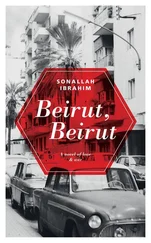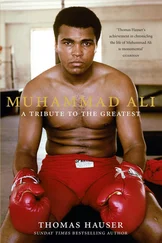Muhammad Abi Samra - Beirut Noir
Здесь есть возможность читать онлайн «Muhammad Abi Samra - Beirut Noir» весь текст электронной книги совершенно бесплатно (целиком полную версию без сокращений). В некоторых случаях можно слушать аудио, скачать через торрент в формате fb2 и присутствует краткое содержание. Город: New York, Год выпуска: 2015, ISBN: 2015, Издательство: Akashic Books, Жанр: Детектив, на английском языке. Описание произведения, (предисловие) а так же отзывы посетителей доступны на портале библиотеки ЛибКат.
- Название:Beirut Noir
- Автор:
- Издательство:Akashic Books
- Жанр:
- Год:2015
- Город:New York
- ISBN:978-1-61775-344-2
- Рейтинг книги:3 / 5. Голосов: 1
-
Избранное:Добавить в избранное
- Отзывы:
-
Ваша оценка:
- 60
- 1
- 2
- 3
- 4
- 5
Beirut Noir: краткое содержание, описание и аннотация
Предлагаем к чтению аннотацию, описание, краткое содержание или предисловие (зависит от того, что написал сам автор книги «Beirut Noir»). Если вы не нашли необходимую информацию о книге — напишите в комментариях, мы постараемся отыскать её.
Most of the writers in this volume are still living in Beirut, so this is an important contribution to Middle East literature — not the “outsider’s perspective” that often characterizes contemporary literature set in the region.
Beirut Noir — читать онлайн бесплатно полную книгу (весь текст) целиком
Ниже представлен текст книги, разбитый по страницам. Система сохранения места последней прочитанной страницы, позволяет с удобством читать онлайн бесплатно книгу «Beirut Noir», без необходимости каждый раз заново искать на чём Вы остановились. Поставьте закладку, и сможете в любой момент перейти на страницу, на которой закончили чтение.
Интервал:
Закладка:
Then he handed me two more books from the stack. One of these was Modernity in Adil Uliyyan’s Fiction and the second, The Thought of Adil Uliyyan . Two professors — neither of whom I’d ever heard of — had written them. There’s no doubt that he’d given each of them a little money. I imagined him slipping it into each of their pockets while making a show of the fact that money was not the issue here, that it’s best to negotiate with your eyes closed.
But I don’t follow literary criticism and I don’t know if Adil Uliyyan has a standing in literature... or indeed if any of these “critics” made any difference or not. It would be strange if all of this praise was merely there hidden away in his file, and had come to pass without anyone noticing it. It would be stranger yet if Adil had succeeded in exploiting his writing in the same way he succeeded in his other ventures. What will remain of literature if it becomes a matter of financial exploitation? The cost of fashioning a writer like Adil Uliyyan would be less than that of opening a shop. Adil didn’t actually admit that he’d paid for the book and I didn’t expect him to do so either. But this was his sole exploit about which he never mentioned money.
He remained on the sofa all taut as a bow. He was wearing a thin black jacket and gray trousers. His shirt was hanging loosely off his body and was fashionably untucked. He handed me the articles written about him page by page, waiting for me to read each one before returning it to the file for safekeeping. While I was reading, he observed me with steady eyes. I gave him the pages back without comment, though while reading all of this extensive praise a sound escaped from between my teeth, which he received with a gratified smile. When I stopped flipping through the papers, I told him that I didn’t understand criticism and critics but they’d praised him a lot. He was content, pleased with what I’d said. It seemed to me that his body relaxed a little. He wanted me to know that he wasn’t merely a person who couldn’t control his body and who was practically keeling over in front of me.
Finished with the papers and books, he started reminiscing about when we were friends, the days back when we were young men. He had more memories than I did — and I doubted if some of them had even happened. Perhaps they were his own inventions. In his narratives, he was the hero of the story and I was merely his sidekick.
He narrated to me — or rather to his wife — the story of the cemetery guard who would have kicked us out, had he not resisted. I knew nothing about this story. Nor the one in which we were confronted by four men while going down to the river. That time, it seems, he outwitted them and we escaped. These stories had me at a loss. But when he started in on the tale of his imaginary adventures with the curate’s daughter, my bewilderment disappeared. I realized that Adil Uliyyan was the very same liar I once had known.
He finally reached an old story that he was still proud of and wanted his wife to hear. It’s the story of a practical joke he played on me. We were sitting beside a natural spring, one of those places that feels like it’s inside the earth, perpetually dark. We arrived there at the end of a day’s outing during which we’d eaten a picnic lunch outside. He took out two plates, gave me one, and told me to do as he did. I don’t remember the reason he gave but I assented in order to please him — I couldn’t say no to my friend on the trip that day. He scooped up water from a little stream and I followed. He started dipping his fingers into the water on his plate, passing them under the plate, and then rubbing them all over his face. I did the same. He repeated this and I imitated him until we stopped. Then we left. We crossed the village square together and then parted to go home. I didn’t yet know that my face was stained with charcoal; there had been sooty charcoal under my plate that had stuck to my damp fingers. Even now — almost forty years later — Adil’s still proud that he was with me when my face was covered in soot in the middle of the town square and everyone laughed at me. This was the go-to episode that he’d recall whenever we met.
Up until this day, I’d never known him to have the ethical disposition to be ashamed of himself for putting a friend in this kind of situation, one that started out as a joke but turned to malice. His smugness about his own cleverness and the success of his prank has remained the same — from when he was fifteen until now that he’s over fifty. From this incident, something childish developed within him and remained there. No doubt this same childish thing was also present in the cartridge of bullets he emptied into the head of the customs man. And no doubt this childish impulse has accompanied him on all his exploits and malicious deeds. He’s the child who plays practical jokes to get attention — amusing people or terrorizing them, there’s no difference.
From that day on, whenever I’d meet Adil Uliyyan he’d retell this story in front of his wife, as though by doing so he could relive it in the present and make Rosette and his daughter Line, who sometimes sat with us, laugh at me. He kept returning to it until I felt that he was humiliating me once again, and that I was a victim of his prank anew. I told him that he hadn’t grown up yet. That he’s still a little boy playing jokes and that he needs to get a life instead of ruminating over these kinds of stories. He recoiled a little bit when I said this, but it didn’t stop him from retelling the story the very next time we met. What really surprised me was how pleased Rosette was by how I spoke to him. Indeed, the way she looked at me while I was talking encouraged me to carry on... The same was true of his daughter Line. The two of them paid me full attention while I talked. They wanted me to keep going and from that time on they started welcoming me warmly, as though I had become part of the family.
The voice of a woman on the other end of the line told me that Mr. Adil wanted to speak to me. Adil then took the phone, his rattling voice coming over the wire, laughing and congratulating me on my grandmother becoming a saint. He said that no doubt some of her saintliness would stick to her children and grandchildren. The whole family would become holy. Despite his playfulness, I could sense anxiety in his voice. He told me that he wanted to see me. Could I find the time to come by his place that day? What about stopping by in the evening so we could drink tea together? I dressed carefully: a brown leather jacket with light-colored jeans; it’s appropriate to maintain a proper appearance in front of Rosette.
When I got there, the servant came and told me that “Baba” was waiting for me in his room. I went up to the second floor and Adil called me into the family room. He told me that Rosette and Line were out shopping. I felt a bit frustrated; it would have been better if Rosette were sitting with us. I liked it when she was there, or at least I didn’t like to be alone with Adil. He was in his dressing gown and slippers and was stretched out on the long sofa that was the only one of its kind in the room, as if it were designed just for him. Struggling to stand up to greet me, he motioned me to the sofa across from him. I entreated him to remain seated and walked over to shake his hand.
We stayed silent for a while, until Adil pressed a button in the arm of the sofa and a servant came. He asked her to make tea. Then he started talking about my grandmother, picking back up where we’d left off that morning on the phone. He wanted to start the conversation between us like this, forging a path through laughter. When the tea arrived, Adil lifted his glass, and as he brought it close to his mouth, he said that he wanted to confide something very important. I promised him that it would remain between us, but I told him explicitly that I don’t like carrying around people’s secrets because it makes me feel an unbearable responsibility; I don’t want to share anything with anyone that isn’t my business. I really didn’t feel any desire to know his secret and hoped that he would leave me free of this burden. But all my excuses only loosened his tongue. He stretched out even more on his sofa and told me that there was something he didn’t want to take to the grave with him. He didn’t know what motivated him to confide it in me. But the day before he’d cooked up an idea in his head and decided to just do it; there was something he wanted to get off his chest, something boiling deep inside his heart he wanted to let out.
Читать дальшеИнтервал:
Закладка:
Похожие книги на «Beirut Noir»
Представляем Вашему вниманию похожие книги на «Beirut Noir» списком для выбора. Мы отобрали схожую по названию и смыслу литературу в надежде предоставить читателям больше вариантов отыскать новые, интересные, ещё непрочитанные произведения.
Обсуждение, отзывы о книге «Beirut Noir» и просто собственные мнения читателей. Оставьте ваши комментарии, напишите, что Вы думаете о произведении, его смысле или главных героях. Укажите что конкретно понравилось, а что нет, и почему Вы так считаете.












